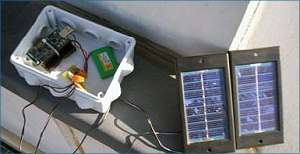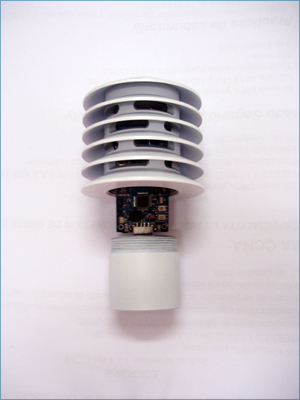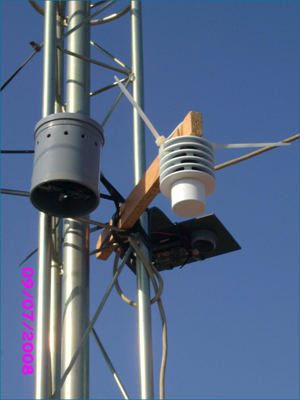The context of the project VARIMOS is the creation of a wireless networks sensors for environmental monitoring. These types of networks proposed in its deployment a number of challenges given the processing, storage, power and communication constraints, largely due to a lack of synchronization of the devices, efficient protocols of medium access and optimal routing algorithms, as well as the lack of cooperation techniques between the motes for carrying out a joint or coordinated, adaptive and self-organised activity.
The deployment of these types of dense distributed sensor networks offers many advantages (self-organising networks, with great robustness, diversity, scalability, and higher spatial density of measure) over traditional centralized systems and is potentially very useful for important applications for society, specifically for environmental monitoring. These types of networks have opened the doors to new environmental monitoring methods, characterised by a high density of spatial sampling, since for its characteristics the motes can easily be distributed in any environment (urban, forest, domestic, etc.). The potential of having a dense network of unattended gauges is attractive for all the fields, especially in the field of environmental sciences, and especially as a tool for atmospheric monitoring. In this current project are deployed a wireless sensor network on a large-scale, with rectangular topology for environmental monitoring in a semi-urban environment, composed of a residential area and a business zone with parks and trees. The implementation and establishment of this network for environmental monitoring sets out a number of challenges to solve from the food systems itself to the efficiency of algorithms of motes synchronization as well as the optimisation of the protocols for media access and routing. Moreover, optimization aspects from data processing and sampled measures are included, given the correlation between monitored variables, within the network itself, as well as the post-processing to infer, to store and to study meteorological behaviours, as well as to store long time series with great spatial density for confirming meteorological simulation results.
Ministerio de Industria, Turismo y Comercio (Subprograma Avanza I+D)















